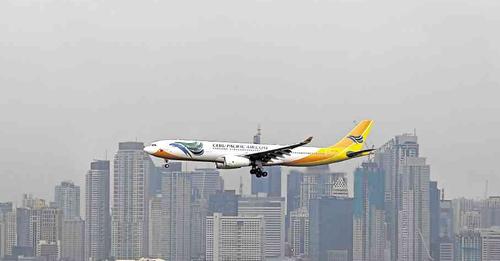
Cebu Pacific, the country’s largest budget carrier, is now requiring passengers bound for Hong Kong to take an antigen test inside the airport before flying in a bid to strengthen screening efforts against COVID-19.
This comes on top of the requirement for a negative reverse transcription-polymerase chain reaction (RT-PCR) test result taken at least 72 hours before departure.
In a statement on Friday, Cebu Pacific said it would shoulder the cost of antigen testing, which is typically priced at around P700, until Sept. 30 this year.
Passengers who test positive for COVID-19 will not be accepted and may rebook or refund their tickets or avail of a travel fund, according to the carrier.
Cebu Pacific passengers bound for Hong Kong should proceed to the Philippine Airport Diagnostic Laboratory at the Ninoy Aquino International Airport Terminal 3 for their antigen tests.
While antigen results would be released within 30 minutes, passengers were advised to get tested four hours before departure.
According to the World Health Organization (WHO), antigen tests were capable of detecting virus proteins collected via nasal swabs.
While this method was less sensitive than RT-PCR tests, the WHO said antigen tests still offered “the possibility of rapid, inexpensive and early detection of the most infectious COVID-19 cases in appropriate settings.”
Cebu Pacific said the test before boarding program provided another layer of protection for passengers and crew.
Cebu Pacific and Philippine Airlines were among the carriers that suffered temporary bans imposed by Hong Kong authorities earlier this month after several of their passengers were found to be positive for COVID-19 in their arrival tests in Hong Kong.
Those passengers had also presented negative RT-PCR test results taken within 72 hours before their departure, which is a requirement of Hong Kong.
Despite its high degree of accuracy, the WHO said RT-PCR tests could miss virus infections that were incubating or when a person was infected after taking the test.

